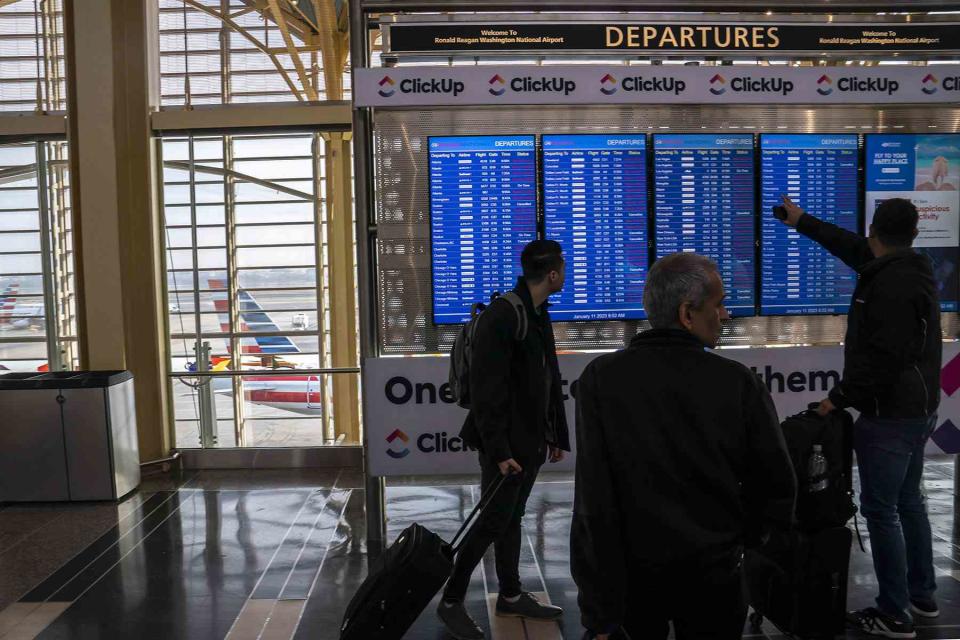The Reason Behind the FAA Outage and What Airlines are Doing to Help Affected Customers
Delta, United, and JetBlue are all offering waivers, credits, or refunds.

Nathan Howard/Getty Images
A damaged database file in the Federal Aviation Administration’s system is thought to have led to the computer outage that temporarily grounded all flight departures nationwide on Wednesday and caused a trickle down effect of mass delays and cancellations.
The FAA said on Wednesday evening there was no evidence of a cyber attack and it was working to learn more. The system, which went down early Wednesday morning, was back up and running by 8:50 a.m., but not before thousands of flights — and customers — had been affected across the country.
“The FAA is continuing a thorough review to determine the root cause of the Notice to Air Missions (NOTAM) system outage. Our preliminary work has traced the outage to a damaged database file,” the agency said in a statement. “The FAA is working diligently to further pinpoint the causes of this issue and take all needed steps to prevent this kind of disruption from happening again.”
By Thursday morning, just over 750 flights had been delayed within, into, or out of the United States, according to flight tracker FlightAware. That was a dramatic difference from Wednesday when the total delays topped more than 10,800.
The temporary halting of takeoffs caused a cascading effect of problems for airlines and their passengers who missed connections and arrived late all across the country. As a result, several airlines offered refunds or issued travel waivers.
The Department of Transportation requires airlines to issue refunds if a flight was canceled, but the rules around delays are a bit more murky and are typically up to the individual airline. Last summer, the DOT put together an interactive dashboard that details airline policies on everything from rebooking to hotel accommodations, and more.
Delta Air Lines, which said the disruption affected the airline’s “operation systemwide,” allowed anyone who was scheduled to fly Wednesday to rebook by Jan. 13, waiving any fare difference. Travelers who needed to cancel the flight altogether would receive a one-year credit.
United Airlines went a step further, allowing customers to request a refund if they no longer want to travel.
JetBlue issued a fee waiver as well, allowing customers affected by the outage to rebook their flights for travel by Thursday.
On the other end of the spectrum, several carriers did not issue an FAA outage-related travel waiver for its customers, including American Airlines, Spirit Airlines, and Alaska Airlines.
For more Travel & Leisure news, make sure to sign up for our newsletter!
Read the original article on Travel & Leisure.

